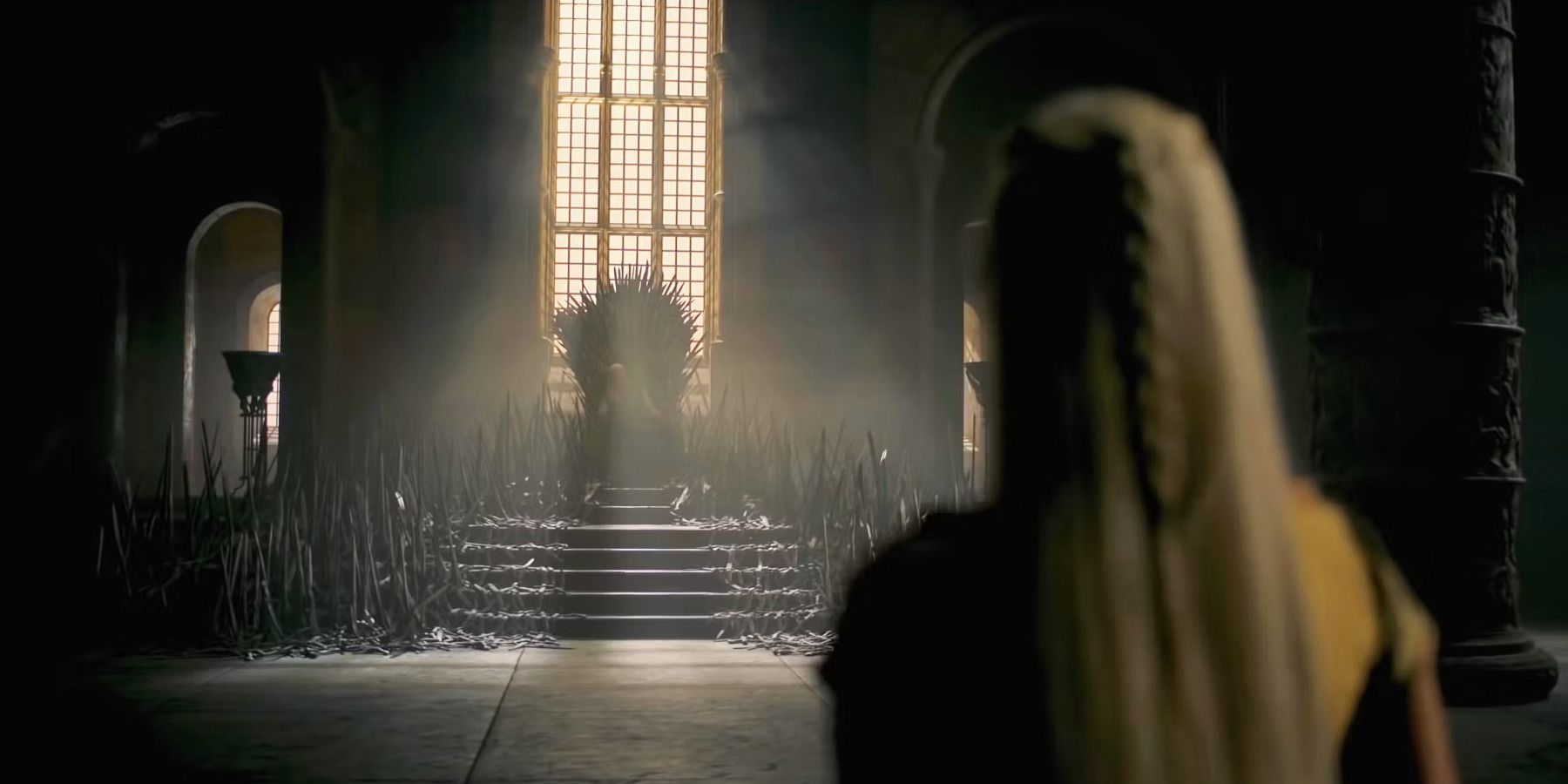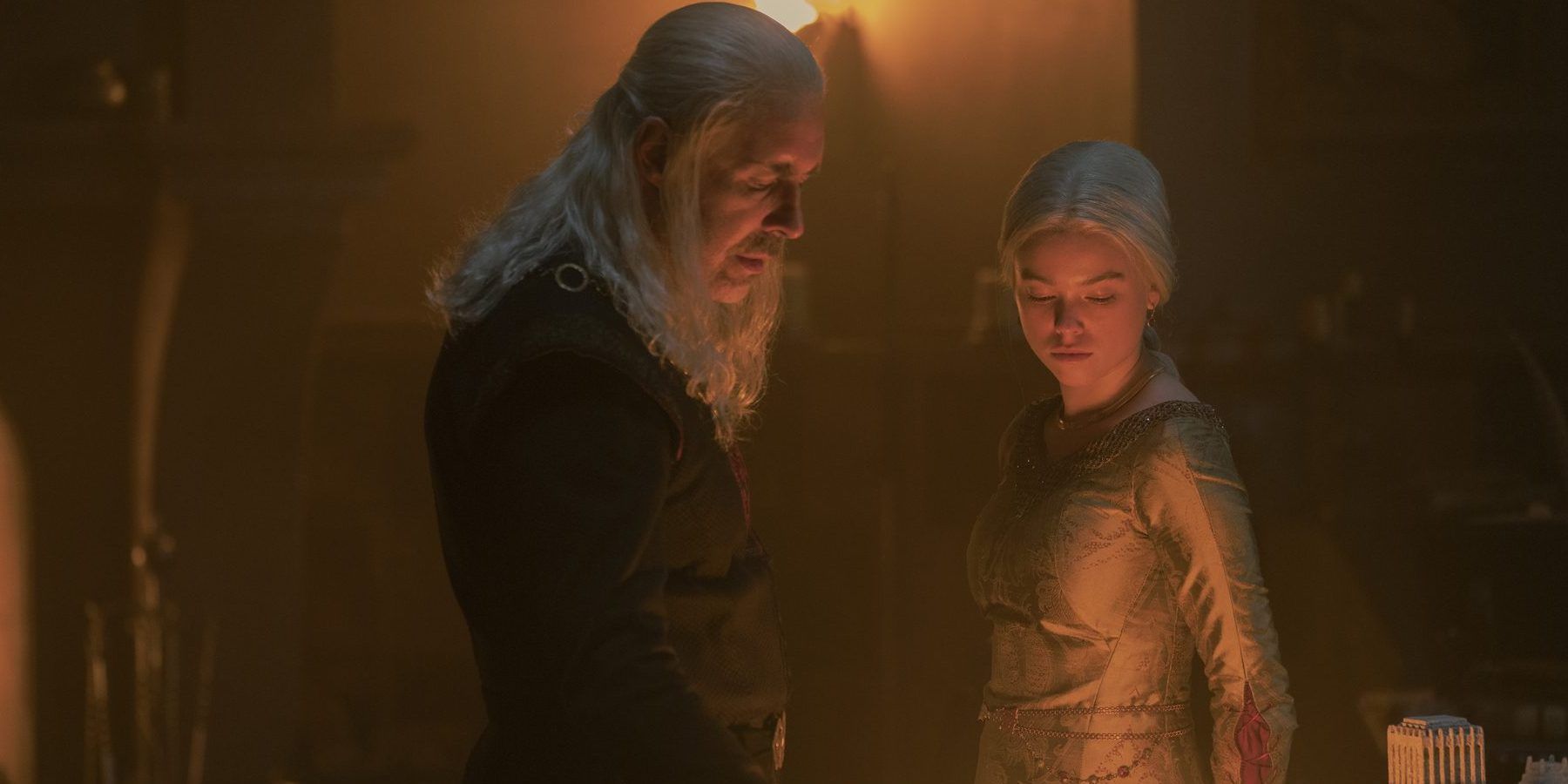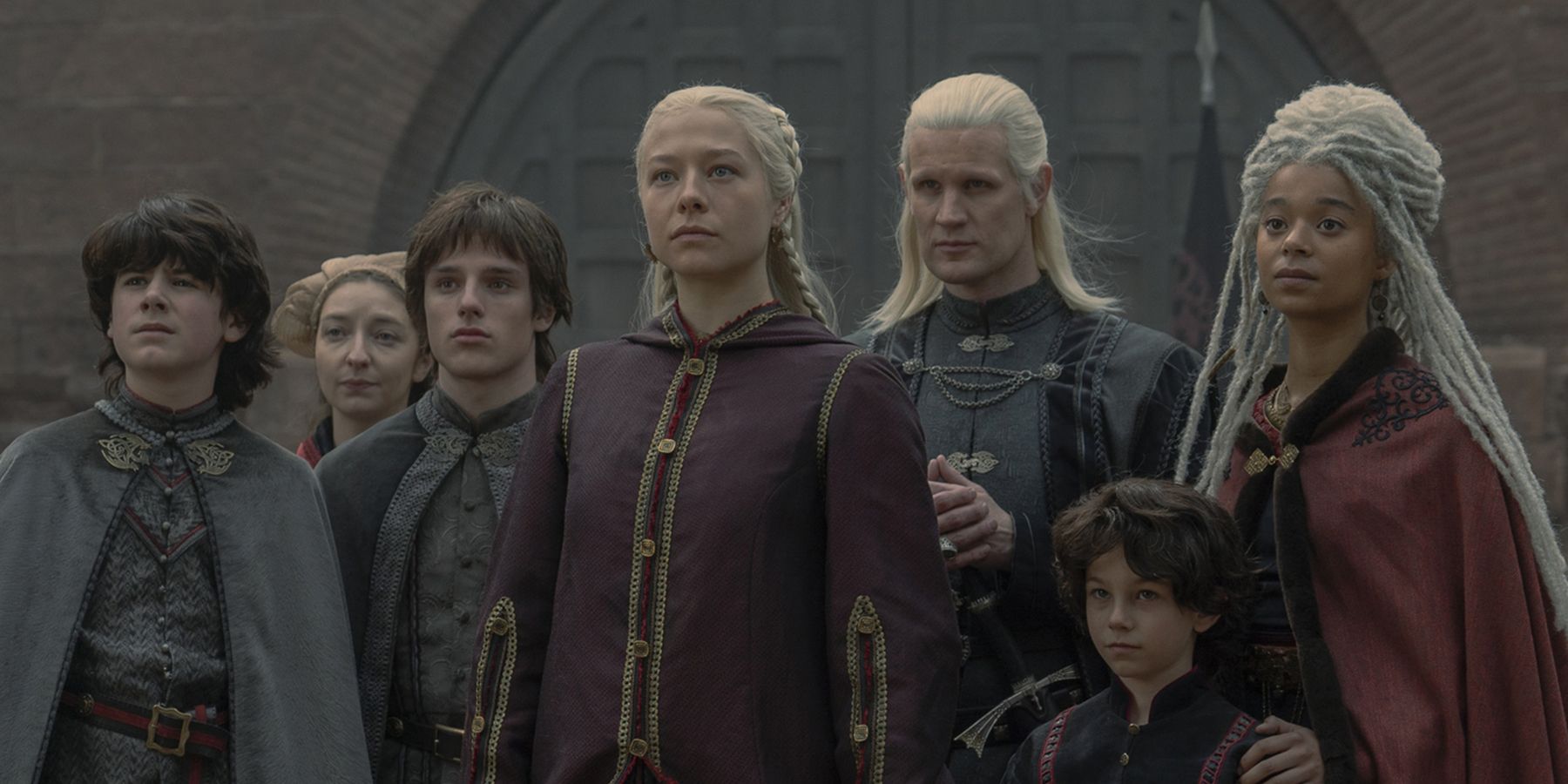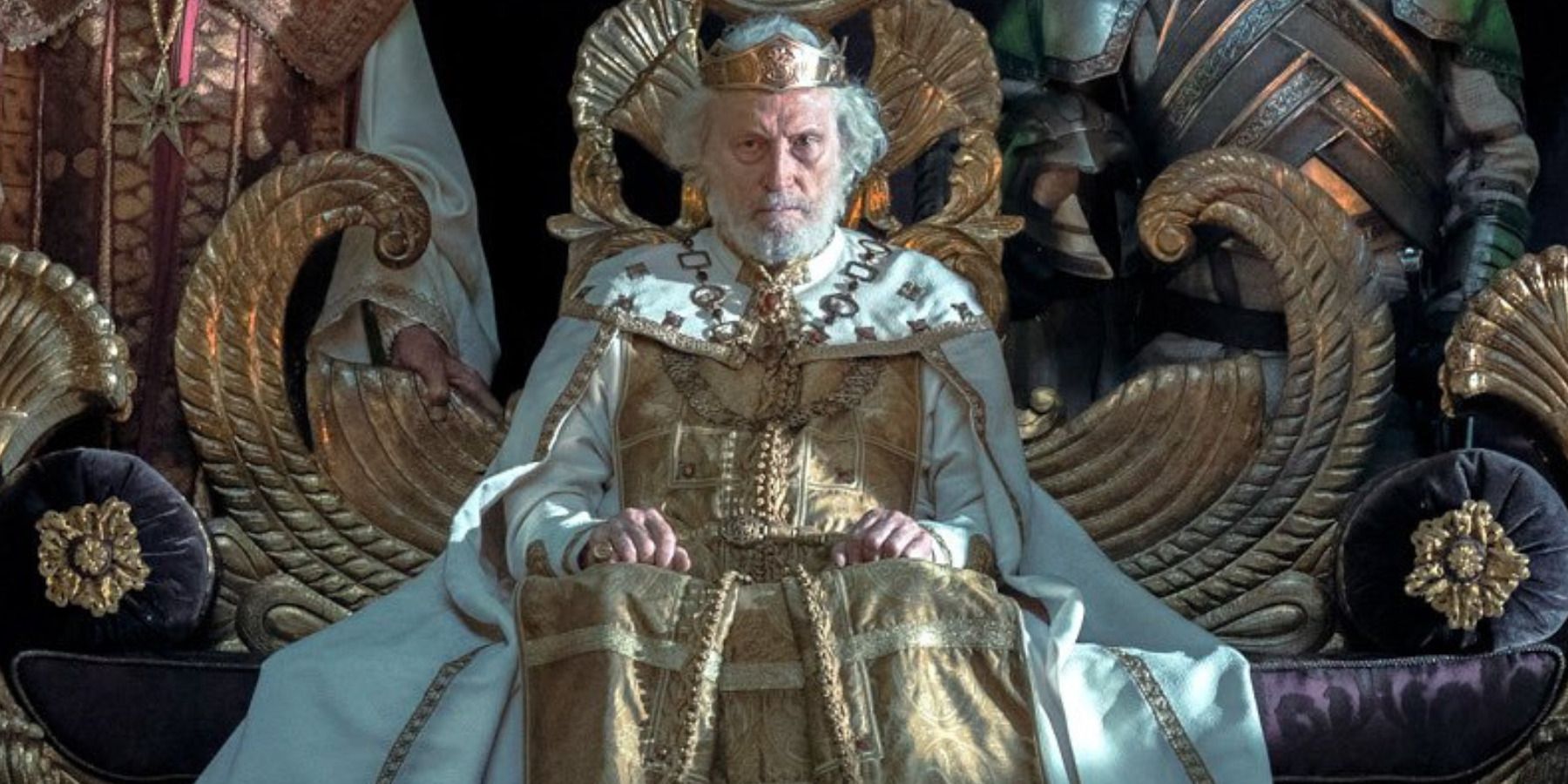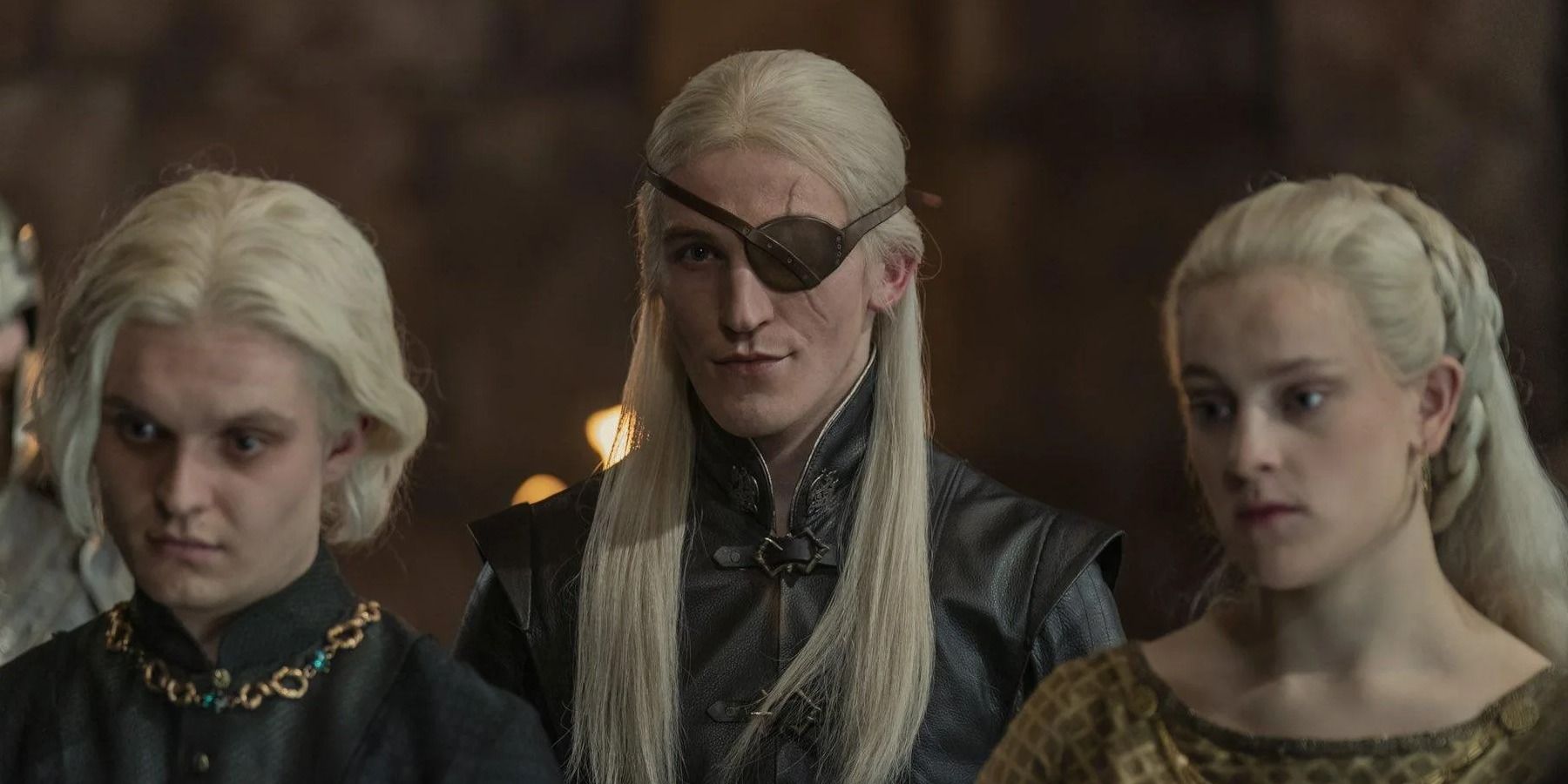When George R.R. Martin began constructing his world of Ice and Fire, his chief inspiration was medieval Europe. House of the Dragon is a perfect illustration of that: the dissonant values the characters espouse is very much in line with a medieval mindset. Various historical parallels can be drawn as well - House of the Dragon was inspired by a period in English history known as the Anarchy. The context of that war was also over the succession to the English throne, which had specific requirements that had to be met before a monarch could take their place.
That principle carries over to Westeros and the Iron Throne, too. The lines of succession are usually certain - but there are gray areas. This gray area is key to understanding the motivations of the two political factions in Westeros: the Blacks (who are supportive of Rhaenyra Targaryen’s claim) versus the Greens (who are supportive of Aegon Targaryen’s claim).
The Black View
The Blacks argue that the current King’s word is absolute, but their whims may be undone by a future successor. Precedence is more of a suggestion than the law. The Blacks support Rhaenyra (Emma D’Arcy) despite historic precedents in Targaryen history: at the Council of 101AC, audiences saw Rhaenys (Eve Best) passed over for the Throne. The King of the time, Jaehaerys (Michael Carter) had to settle the succession several times over his lifetime, and always seemed to favor male heirs over any female heirs.
The Blacks do not feel that this is an ironclad law. King Viserys (Paddy Considine) declared Rhaenyra as his heir, so the Blacks think that his word and will matters more. Some members of the Blacks also feel that women should automatically be in line for the Iron Throne as they are for Lordships
Rhaenyra and Her Heirs
Rhaenyra’s succession is slightly more straight forward than her brother’s: in normal succession, a daughter will come before an Uncle, but after sons. Rhaenyra is not egalitarian in that way; women still aren’t considered until after their brothers. It's still a progressive view, however: Targaryen women were not expected to lead; as shown in House of the Dragon, a Targaryen women is still considered lesser, no matter how big and fierce her dragon (which is important for Targaryen rule) may be.
First up is Rhaenyra herself, who would be the first Queen of Westeros. Rhaenyra's heir is Jacaerys (Harry Collett), as her firstborn. Since Jace does not have children, his heir would be his younger brother, Lucerys (Elliot Grihault) had Luke survived the dragon fight in the House of the Dragon season 1 finale.
Now, Jace’s heir is Joffrey, the last of Rhaenyra’s sons with Laenor (John McMillan). The audience, however, knows the three are actually Rhaenyra’s sons with Ser Harwin Strong (Ryan Corr), and if the public knew the three were bastards, there would be no side in which they would stay in the succession - and even if a monarch were to legitimize them, their status as bastards places them last in line for succession. It would be a huge mark against Rhaenyra’s honor, and the knowledge that she had mothered multiple bastards would likely cause her to lose many of her supporters.
Even if the three boys were disinherited, Rhaenyra later has two sons by Daemon (Matt Smith). Though audiences only get to see the two of them briefly, the two would be fourth and fifth in succession in theory. The elder, Aegon, is currently third in line for the throne, while the younger, Viserys, is fourth, following the death of Luke. Daemon himself would be in line for the Iron Throne, as well, should Rhaenyra and all her children die. Rhaenyra has younger siblings, but it’s unclear whether she’d support them being included in her chain of succession. It would have been a possibility before Luke’s death, but her hardened stare in the season finale shows she no longer considers them family.
Daemon’s daughters are now sixth and seventh in line for the Iron Throne. The two were seen only briefly in the series, but the elder is named Baela (Bethany Antonia). Deleted scenes reveal her to be a fiery, true dragon. The younger is named Rhaena (Phoebe Campbell), and she currently has no dragon.
The Green View
The Greens are more conservative in their support of Aegon (Tom Glynn-Carney). Since he’s the king’s firstborn son, they view his claim as a right over his sister. They also feel that Jaehaerys was subtly codifying an exemption for women ever sitting on the Iron Throne. The Greens are also motivated by Rhaenyra’s marriage to Daemon. As seen in season 1, Daemon is a controversial figure, and they want him nowhere near the throne. This was, ironically, what caused Otto Hightower (Rhys Ifans) to suggest putting him aside so Rhaenyra could take the Throne - unknowingly setting the stage for the Dance of the Dragons.
Aegon and His Heirs
Aegon’s succession is less certain. In the series, he has two children: twins named Jaehaerys and Jaehaera. He also may have a third, younger child named Maelor who has yet to be seen - the suggestion of a third child for Aegon is present in the animated opening, but only Jaehaerys and Jaehaera are seen on screen in season 1. Theoretically, both of Aegon's sons should be after him in line for the Iron Throne. That's an issue - Jaehaerys and Maelor are far too young to rule, and if Aegon is killed during the war, the Greens would need a strong figurehead.
That means that Aemond (Ewan Mitchell) is best positioned to be his brother’s heir - or at least a likely regent, in case of the worst. And though Aegon’s sister-wife, Helaena (Phia Saban) is the next youngest after him, the Greens do not think a woman should sit on the Throne. There is one last Targaryen sibling that has yet to be met: Daeron. The fourth of Alicent (Olivia Cooke) and Viserys’ children, he’s away at Oldtown, but will be a presence in season 2. He would be the last chain in Aegon’s succession, should the need arise.
The gray aspects of the succession in House of the Dragon add to the complexity of the situation and is a direct criticism of monarchy as a form of government. What should theoretically lead to clear, easy, and simple transfers of powers is instead a hypocritical system designed to exclude certain members of society and can quickly grow too complicated to easily understand. The Westerosi believe children should be the direct heir of their parents, but constantly exclude a father's daughter. Birth order matters in this society until the lords decide that it doesn't. And, ultimately, the Targaryens are projecting their rule through the fear and power of dragons rather than any solid capability and reason for rule - their philosophy of Fire and Blood will come in season 2 so that the House can sort out its issues at the expense of their Kingdom.
House of the Dragon is available to watch on HBO Max.

